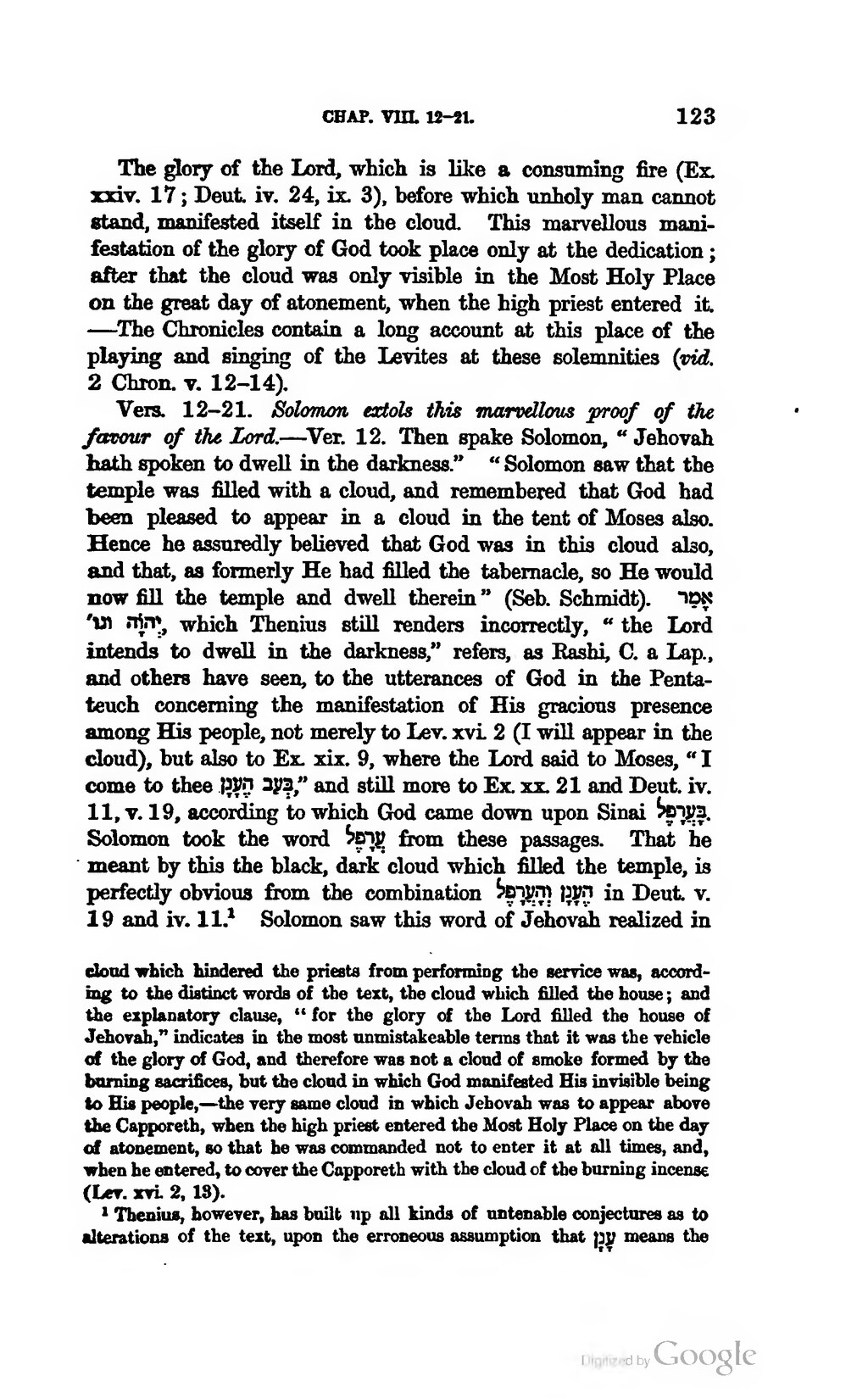The glory of the Lord, which is like a consuming fire (Exo 24:17; Deu 4:24; Deu 9:3), before which unholy man cannot stand, manifested itself in the cloud. This marvellous manifestation of the glory of God took place only at the dedication; after that the cloud was only visible in the Most Holy Place on the great day of atonement, when the high priest entered it. - The Chronicles contain a long account at this place of the playing and singing of the Levites at these solemnities (vid., 2Ch 5:12-14).
Verses 12-15
1Ki 8:12-15Solomon extols this marvellous proof of the favour of the Lord. - 1Ki 8:12. Then spake Solomon, “Jehovah hath spoken to dwell in the darkness.” “Solomon saw that the temple was filled with a cloud, and remembered that God had been pleased to appear in a cloud in the tent of Moses also. Hence he assuredly believed that God was in this cloud also, and that, as formerly He had filled the tabernacle, so He would now fill the temple and dwell therein” (Seb. Schmidt). וגו יהוה אמר, which Thenius still renders incorrectly, “the Lord intends to dwell in the darkness,” refers, as Rashi, C. a Lap., and others have seen, to the utterances of God in the Pentateuch concerning the manifestation of His gracious presence among His people, not merely to Lev 16:2 (I will appear in the cloud), but also to Exo 19:9, where the Lord said to Moses, “I come to thee הענן בּעב,” and still more to Exo 20:21 and Deu 4:11; Deu 5:19, according to which God came down upon Sinai בּערפל. Solomon took the word ערפל from these passages. That he meant by this the black, dark cloud which filled the temple, is perfectly obvious from the combination והערפל הענן in Deu 5:19 and Deu 4:11.[1]
Solomon saw this word of Jehovah realized in
- ↑ Thenius, however, has built up all kinds of untenable conjectures as to alterations of the text, upon the erroneous assumption that ענן means the light and radiant cloud, and cannot be synonymous with ערפל. Böttcher adopts the same opinion, without taking any notice of the striking remarks of Bertheau on 2Ch 5:14.
